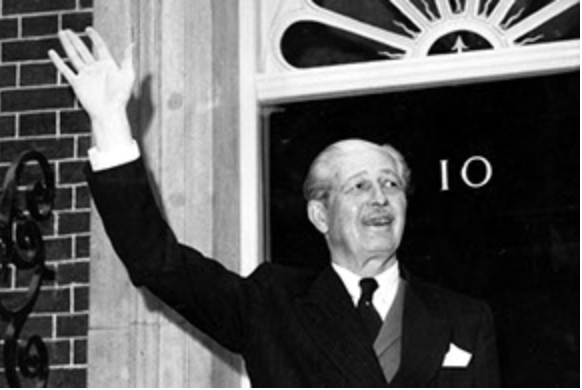BOOK REVIEWS
Harold Macmillan
Harold Macmillan
Charles Williams
Weidenfeld and Nicolson
As a prime minister, Harold Macmillan was destined to epitomise a plateau in British political life rather than an upward slope. Bracketed at one end by the aftermath of Suez and at the other by the Profumo scandal, his premiership was a holding operation, rescuing the Conservative Party from bitter divisions, presiding over a period of prosperity, embracing disengagement from Africa, winning a famous electoral victory in 1959, and seeking to balance the so-called special relationship with the United States and the logical imperative of joining the Common Market. As Charles Williams points out, had Macmillan resigned in 1962, rather than in 1963, his reputation would be much higher than it is, although he would still presumably have manipulated the selection of his successor, with a similarly unhappy result.
For all his suppleness and legerdemain as a politician, Macmillan embodied a retrograde outlook. His manner has often been described as that of an Edwardian country gentleman, and in many ways he seemed more old-fashioned a figure than Winston Churchill. Although a Keynesian expansionist in economic terms, he was nonetheless a social conservative, though he did permit Rab to introduce some progressive reforms at the Home Office.
The son of a half-English, half-Scottish publisher and an American socialite, Macmillan was educated at Eton, which he left prematurely and without adequate explanation – later rumours that he had been expelled for buggery were put about by a resentful contemporary – and Balliol College, Oxford, where he was much influenced by Anglo-Catholicism. At the height of the Depression he became MP for the northern constituency of Stockton-on-Tees, where he showed great empathy with unemployed workers and urged the expansion of the welfare state.
The crisis in his life came in 1931 when he had a nervous breakdown after learning that his wife Dorothy had embarked on an affair with a fellow Conservative MP, Bob Boothby. It is even possible that the Macmillans’ daughter Sarah was actually Boothby’s illegitimate. Charles Williams argues that his wife’s adultery with Boothby was the making of Macmillan instead of the breaking of him. He steadfastly refused Dorothy’s requests for a divorce but at the same time tolerated her prolonged adultery, and “the adamantine firmness he showed there was gradually translated into firmness – verging on brutality – elsewhere”. Not only did he have to suppress the thought that his daughter Sarah was actually Boothby’s illegitimate offspring, but also he later discovered that Dorothy had forced Sarah to abort her own illegitimate child (rendering her unable to have any children thereafter) for the sake of Macmillan’s political career. His marital crisis also led him “to assume a mask of impenetrable calm, to let the world know that there was really nothing to get upset about”.
Charles Williams is also Lord Williams of Elvel, a Labour politician and former merchant banker, who was criticised for failing in his duties as a non-executive director of the Mirror Group when the late Robert Maxwell was defrauding its pension fund. He has written a bright and swift moving biography, without party-political rancour – indeed, it would be hard to deduce his own political inclinations from the text. However, he is certainly not sparing in his criticisms. Macmillan’s involvement in the post-war repatriation of the Cossacks – they returned to certain death in the Soviet Union – “leaves an unpleasant taste”; his involvement in the Suez affair – he eagerly accepted Israeli collusion and deceived both the US government and the House of Commons about it – was “a sorry story”.
His determination to prevent Rab Butler from succeeding him at all costs meant, in the estimation of most historians, that his party paid the cost of defeat in the 1964 election.
Macmillan is perhaps best remembered for having uttered the phrase “you’ve never had it so good”, implying a certain smugness and self-congratulation about the state of the economy under his leadership – except that he didn’t. What he actually said was “most of our people never had it so good”, which is subtly different and hard to dispute as an observation about Britain in July 1957. What’s more, he went on to ask the question “Is it too good to last?” and to warn about the peril of rising prices: “Can we control inflation? This is the problem of our time.” But it was not a problem that Macmillan was ever adequately to address, let alone solve.
When Margaret Thatcher came to power in 1979, she was determined to slay the dragon of “Macmillanism” – albeit a point of view, not a coherent body of ideas – as much as that of socialism. Inflation was belatedly given the attention it deserved and the trade unions no longer appeased. It was in that respect, as a non-identifier for Mrs Thatcher, that Macmillan had a lasting legacy. Peter Thorneycroft, one of the ministers who had resigned from Macmillan’s government over his economic policy, was party chairman at the time of her accession to power.

